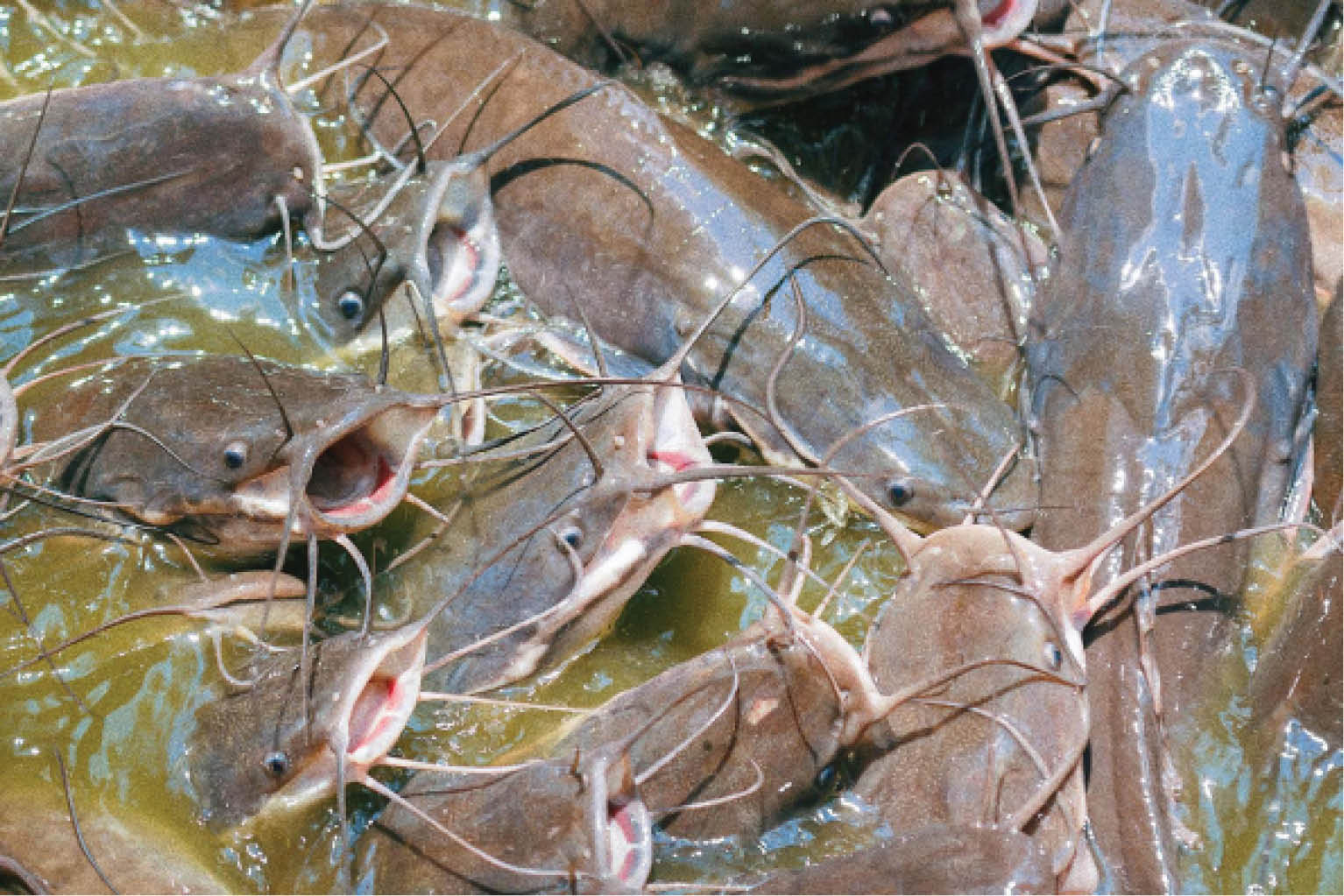How 28-yr-old uses innovative approach to save his fish farm
Across the country, young Nigerians are beginning to leverage the abundant opportunities in the nation’s agricultural sector to generate more income for themselves. A tale of perseverance and innovation, embodied by 28-year-old, Temitayo Miracle Ajiboye, a dedicated fish farmer trying to create wealth for himself instead of waiting for white-collar jobs like many of his […]

Across the country, young Nigerians are beginning to leverage the abundant opportunities in the nation’s agricultural sector to generate more income for themselves.
A tale of perseverance and innovation, embodied by 28-year-old, Temitayo Miracle Ajiboye, a dedicated fish farmer trying to create wealth for himself instead of waiting for white-collar jobs like many of his peers would do, lies in the heart of Kabala West, Kaduna South LGA, Kaduna State.
Mr Ajiboye’s journey in fish farming stemmed from inspiration he derived from a friend’s success story.
Drawing from his mentor’s expertise, he ventured into the fish farming business over a year ago, driven by a deep passion for aquaculture and sustainable food production.
Out-of-school kids: Reps ask govs to order compulsory enrolment
Reps want telemedicine regulated in Nigeria
The young farmer utilizes the available family space to delve into fish farming and hatchery from which he supplies fingerlings to other farmers around.
With a B. Tech degree in Urban and Regional Planning and currently serving as an NYSC member, the young farmer said one of the biggest lessons he has learnt so far is that knowledge is key.
“First of all, adequate knowledge of fish farming is a basic prerequisite. Not knowing its intricacies before venturing into it might lead to frustration. Also, quality feed should be used to raise the fish as this will ensure proper growth which will in turn lead to good profit,” he said.
However, the path to success was fraught with challenges, particularly the unreliability of electricity supply which heavily impacted the financial stability of local fish farmers.
Fondly called “Tayo” by his friends, the fish farmer shared his experience, highlighting the profound impact of power outages on his operations and how he navigated through the hurdles with innovative ideas.
The lack of electricity led to distressing consequences, with a staggering 80% mortality rate among his fish stock due to inadequate water circulation. This not only affected the well-being of his fish but also placed a severe strain on his carefully planned budget, as additional expenses for courses of treatment became a necessity.
Undeterred by these challenges, however, this local fish farmer resolved to innovate and invest in a solar borehole to secure a consistent water supply for his fish farm.
Despite the substantial upfront investment ranging from N300,000 to N500,000, Mr Ajiboye envisaged enduring benefits, including reduced fish loss, enhanced productivity, and minimized dependency on erratic power supply from the electricity distribution companies that are also confronted by numerous challenges.
In the face of financial barriers, the young farmer demonstrated resourcefulness by leveraging his income as a town planner to defray some of the expenses, showcasing an unwavering commitment to his vision of sustainability and profitability. His forward-thinking approach and resilience mirror the spirit of perseverance and adaptability vital in navigating the complex landscape of agriculture.
He emphasized the critical factors for success in fish farming—knowledge, quality feed, and a robust market—offering invaluable guidance to aspiring fish farmers. His determination to overcome unexpected challenges, such as inquisitive birds attracted to his pond, reflects his ingenuity and unwavering commitment to his craft.
Ultimately, the young farmer’s innovative and sustainable approach to fish farming serves as an inspiration to the entire community. His story encapsulates the spirit of resilience and forward-thinking that is essential in the pursuit of agricultural excellence, igniting hope for a brighter and more prosperous future for fish farming in Kaduna State.
Speaking on feed, he said the “cost of feed has really increased due to high dollars/naira exchange rate. One way we tackle this without running at a loss is to increase the prices of fish.”
His plan for the future “is to move from small-scale farming to a bigger scale by installing more ponds and hatching other species of fish like tilapia and not just catfish.”
